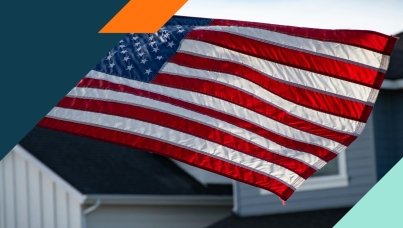Going for Advertising Gold with the 2004 Athens Olympics
Every four years since the first telecast in 1960 (and every two years since 1992), advertisers have engaged in a high-stakes game of advertising and sponsorship with the Olympics. In North America, the Olympics rival advertising's other big events (the Oscars, the Golden Globes, the Grammy awards), and, with advertising spread out over two weeks, advertisers can spend more during the Olympics than buying $2.1 million time slots during the Super Bowl. The games in Athens were arguably the most high profile yet, with considerable pre-games hype and, according to the International Olympic Committee (IOC) broadcast report, a record-breaking 3.9 billion people worldwide watching. But were the ads effective and was advertisers' money well spent?
We assessed the effect of Olympic advertising with Canada's national public broadcaster, the Canadian Broadcasting Corporation (CBC), by conducting pre- and post-Olympic telephone interviews with English-speaking Canadians. We asked respondents about their viewing habits and which advertisements they remember seeing, and tracked their opinion of sponsors across 13 categories and 40 brands.
The CBC Olympic broadcast provided high reach, a quality viewing environment, and a highly engaged audience. Nearly half of Canadians watched as much Olympic coverage as they could, which, for 65%, meant tuning in daily. The IOC reported that each Canadian consumed nine hours of Olympic coverage over the course of the games, and, at its peak, 3.6 million Canadians (cumulative) watched coverage of the opening ceremonies. Daily traffic spiked at two million impressions on August 24, when Canadian Perdita Felicien crashed through the 100-meter hurdles. Most Canadians (71%) were able to identify CBC as their primary destination for Olympic viewing, and survey respondents gave CBC top marks for overall broadcast quality (82% of respondents said CBC provided a quality broadcast, compared to 49% who thought NBC offered a quality broadcast). Given these advantages, did sponsors make the most of the opportunity provided by the CBC?
CBC's Olympic a dvertising tracking program looked at two aspects of advertising effectiveness: advertising recall and consumer response. For an advertising campaign to work, it has to meet these two criteria. Recall levels for Olympic sponsors on the CBC network was, on average, 122% higher during the games than beforehand, climbing from 9% to 20%. For selected major sponsors, recall was even higher.
The creative quality of advertisements was a key driver of recall, communication, and attitude change. Brands that created campaigns with several similar ads saw much higher levels of recall shift, brand image shift, and sponsor awareness levels than single ads or unrelated ad groups. Likewise, Olympic-themed creative was more effective than non-themed creative: sponsors that linked their ads to the event doubled ad recall shift, and did even better for brand image shift and sponsor awareness measures.
Those companies that invested in broadcast sponsorship earned other dividends: the average net change in viewers' positive feelings about the brands was above the average seen in our database for regular ads. As well, the association with the Olympic broadcast transferred positively to sponsors. Twenty percent of respondents indicated they would make a special effort to buy from sponsors, 24% said they pay more attention to advertising in the Olympics, and 28% feel that Olympic sponsors are leaders in their industry. These are important benefits for a business trying to build a leading company image in the consumer's mind.
So, was it worth it? Absolutely. The Olympics is an extraordinary bi-annual advertising event that delivers exceptional viewer attentiveness and advertising results. And the 2006 Winter Olympics in Turin, Italy, should provide even better prospects for sponsors in Canada, as the overwhelming majority of Canadians prefer the winter games to summer games.



